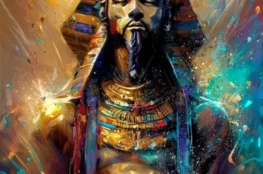Greek goddesses are fascinating mythological characters that have captivated people’s imaginations for centuries. Each of these divinities is associated with a specific domain of life or quality, making them powerful and influential figures in Greek mythology.
Athena, goddess of wisdom and war: history and depictions

In Greek mythology, Athena is one of the most prominent goddesses, revered for her intelligence, wisdom, and strength. She is often depicted wearing a helmet and carrying a spear or shield, symbols of her warrior spirit. But there is much more to Athena than just her martial prowess. In fact, her symbolism is rich and varied, and her story offers many lessons for those seeking wisdom and inspiration.
The origins of Athena can be traced back to the ancient Greek city-state of Athens. Legend has it that the city was named after her, following a contest between her and Poseidon, the god of the sea. According to the myth, both Athena and Poseidon wanted to be the patron deity of the city, so they agreed to a contest to determine who would be chosen. Poseidon struck the ground with his trident and created a spring, but the water was salty and undrinkable. Athena, on the other hand, planted an olive tree, which provided food, oil, and wood for the people of Athens. The people chose Athena as their patron deity, and the city was named after her.
The olive tree is one of the most important symbols of Athena. It represents peace, prosperity, and the fruits of wisdom. According to the myth, Athena taught the people of Athens how to cultivate and care for the olive tree, which became a symbol of their civilization. The olive wreath was also used to crown winners of the ancient Olympic Games, which were held in honor of the gods.

Another important symbol of Athena is the owl. In ancient Greek culture, the owl was a symbol of wisdom, and it was believed that Athena could see through the darkness of ignorance and into the light of truth. Athena was often depicted with an owl perched on her shoulder or on a branch next to her. The owl is also associated with the goddess of learning, as it is said to represent knowledge and understanding.
Athena’s armor and weapons are also significant symbols. Her helmet represents protection and the power of the mind, while her spear represents the ability to overcome obstacles and defeat enemies. Her shield represents defense and the ability to stand firm in the face of danger. These symbols remind us of the importance of mental and physical strength in achieving our goals.
“Σοφίην τε καὶ ἀμυντήρα θεοὶ ἕτεροι πάντες ἐπαινέοντες θέσαν Ἀθηναίῃ.”
- Πίνδαρος, Ολυμπιακοί Ύμνοι
“All the other gods praised Athena as wise and as a defender.”
Pindar, Olympian Hymns

In addition to her symbols, Athena’s story offers many lessons for those seeking wisdom and inspiration. She is known for her intelligence, strategy, and leadership abilities, which are qualities that we can all strive to emulate. She is also associated with the arts, particularly weaving, which is said to represent the creative power of the mind.
In conclusion, Athena is a complex and fascinating figure in Greek mythology, with a rich symbolism that offers many insights into the human experience. Her story reminds us of the importance of wisdom, strength, and creativity in achieving our goals, and her symbols offer powerful images of protection, knowledge, and prosperity. Whether we are looking for inspiration, guidance, or simply a deeper understanding of the world around us, Athena’s story and symbolism can offer valuable insights and lessons for us all.
Hera, goddess of marriage and family: legends and symbols
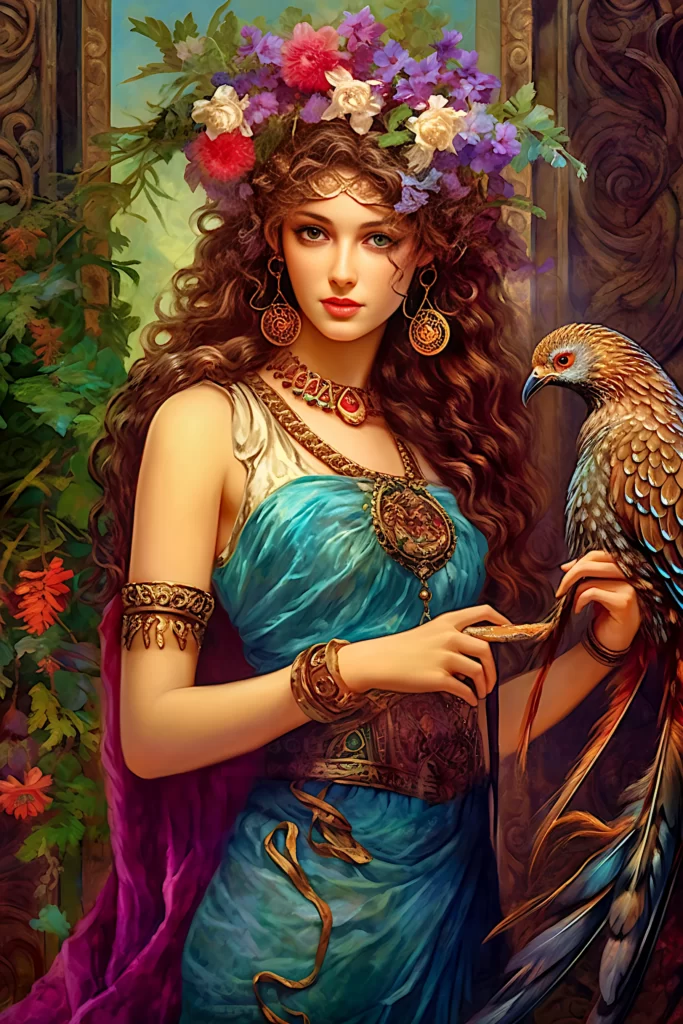
Hera, the queen of the Olympian gods, is one of the most significant figures in Greek mythology. She is known for her beauty, power, and fierce loyalty to her husband Zeus. However, her story goes beyond her role as a wife and mother. In this article, we will explore the symbolic meaning of Hera and her significance in the world of mythology.
Hera is often associated with the idea of marriage and fidelity. She is the goddess of marriage and is seen as the protector of all married women. Her role as a wife to Zeus is a significant part of her identity, but it is important to note that she is much more than that. Her name itself has a symbolic meaning. The word “Hera” comes from the ancient Greek word “heros” which means “lady” or “queen”. This name emphasizes her regal status and her importance in the pantheon of gods.
Another important aspect of Hera’s symbolism is her association with childbirth. She is often depicted as a motherly figure, helping women during childbirth and protecting newborns. This aspect of her symbolism emphasizes her nurturing and caring nature. However, Hera is also known for her vengeful side, and she can be wrathful towards those who cross her or her family.
The Greek gods are not mere mythological figures, but spiritual entities that embody the forces of nature and the deepest aspects of the human soul.
Proclus, neoplatonic philosopher of the 5th century AD
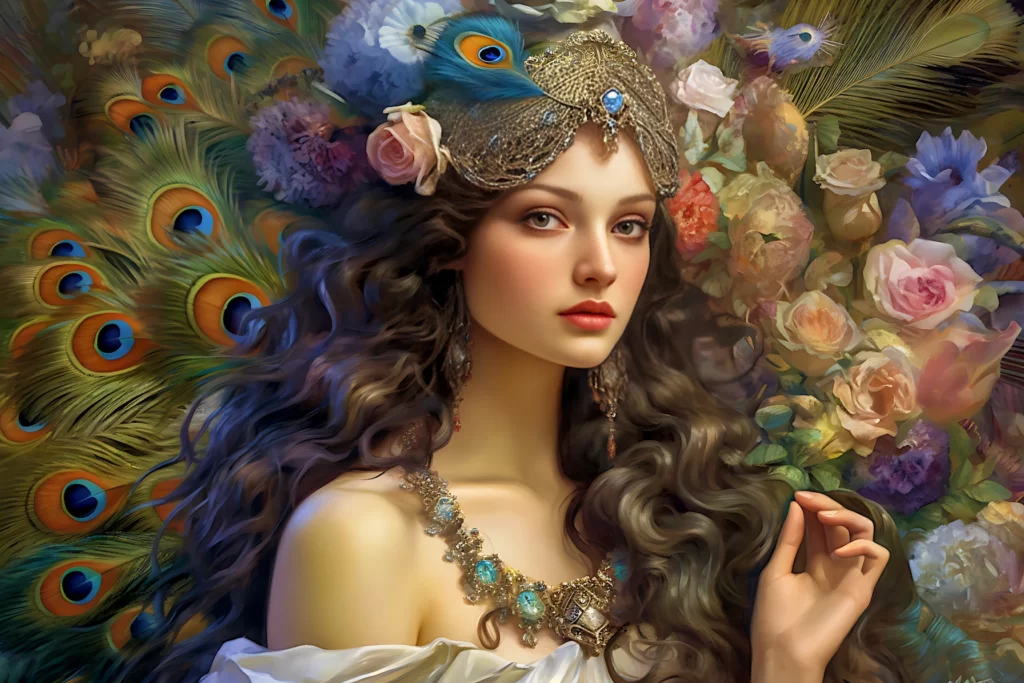
Hera is also associated with the peacock, which is often depicted in her imagery. The peacock is a symbol of beauty, wealth, and luxury, which are all characteristics that Hera embodies. The peacock’s feathers, with their iridescent colors, also represent the eyes of the stars, which reinforces Hera’s connection to the celestial realm.
One of the most famous stories associated with Hera is the myth of the Golden Apple. In this myth, Eris, the goddess of discord, throws a golden apple inscribed with the words “to the fairest” into a gathering of gods and goddesses. Hera, along with Athena and Aphrodite, each claims the apple for herself. The ensuing argument leads to the Trojan War. This story emphasizes Hera’s competitive nature and her desire for recognition and power.
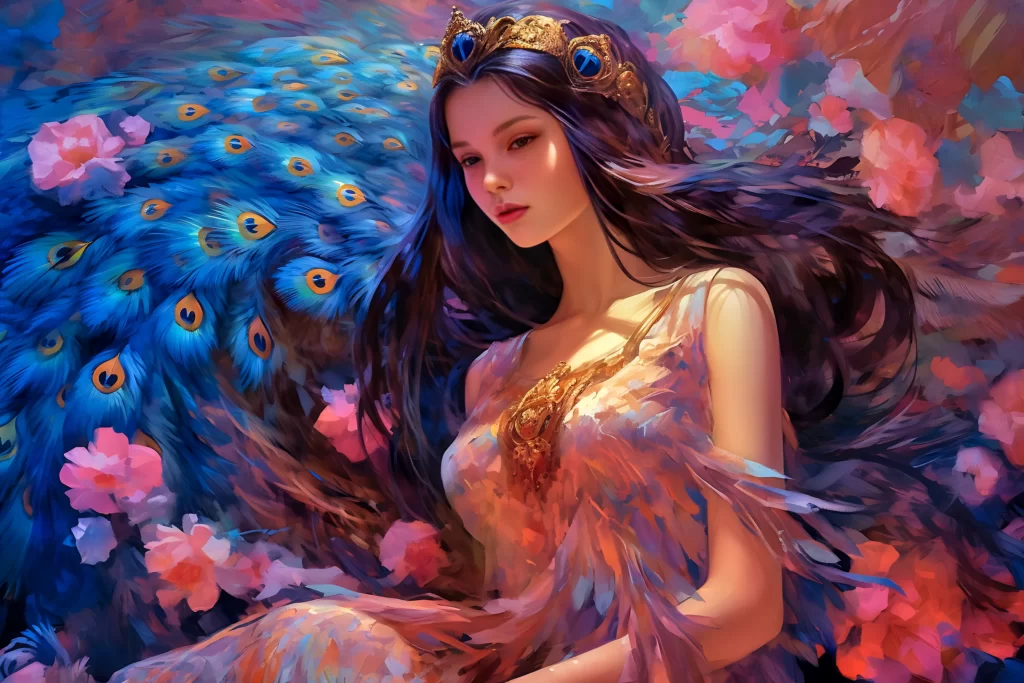
In conclusion, Hera’s symbolic meaning goes beyond her role as the queen of the gods and wife of Zeus. She embodies the ideas of marriage and fidelity, childbirth and nurturing, beauty and luxury, and power and competition. Her association with the peacock and the myth of the Golden Apple adds depth to her symbolism and reinforces her importance in Greek mythology. As one of the most powerful and complex figures in mythology, Hera continues to fascinate and inspire people today.
Aphrodite, goddess of love and beauty: myths and artistic inspirations
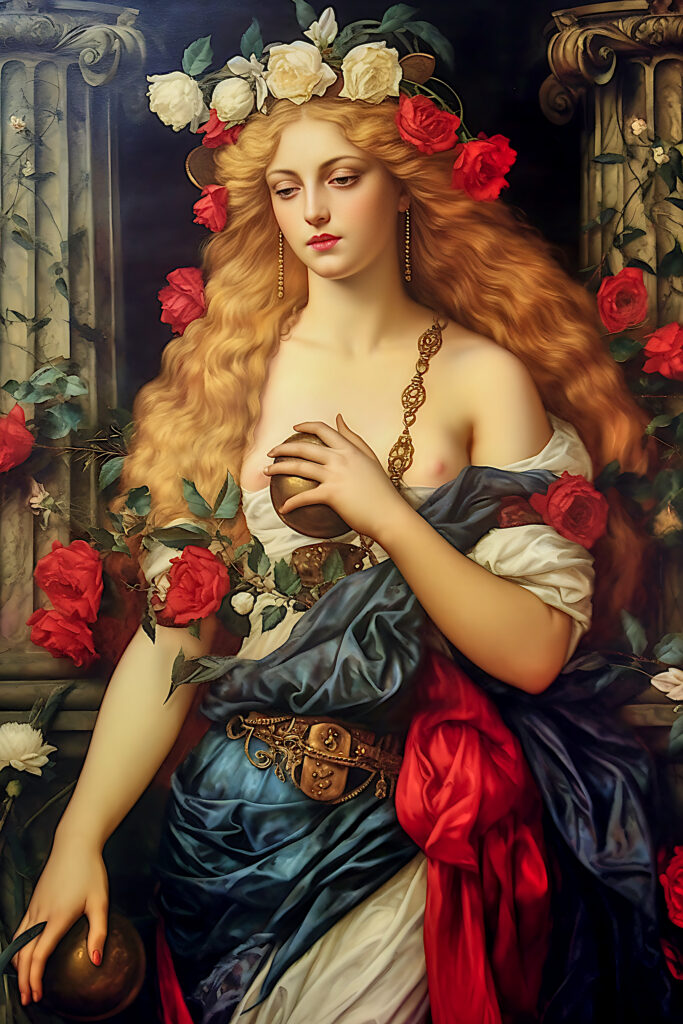
In Greek mythology, Aphrodite is the goddess of love, beauty, pleasure, and procreation. She is often depicted as a beautiful and seductive woman, with a girdle that has the power to make anyone fall in love with the wearer. Her symbols include roses, doves, swans, and the sea, and her myths and legends have inspired countless works of art, literature, and music.
But what is the deeper meaning behind the symbolism of Aphrodite, and how can we understand her role in the larger context of Greek mythology?
Aphrodite represents the archetypal image of the feminine principle in its aspect of beauty, love, and sexual attraction. She embodies the qualities of eros, the Greek term for love that encompasses not just physical desire but also emotional intimacy, creativity, and spiritual transformation.
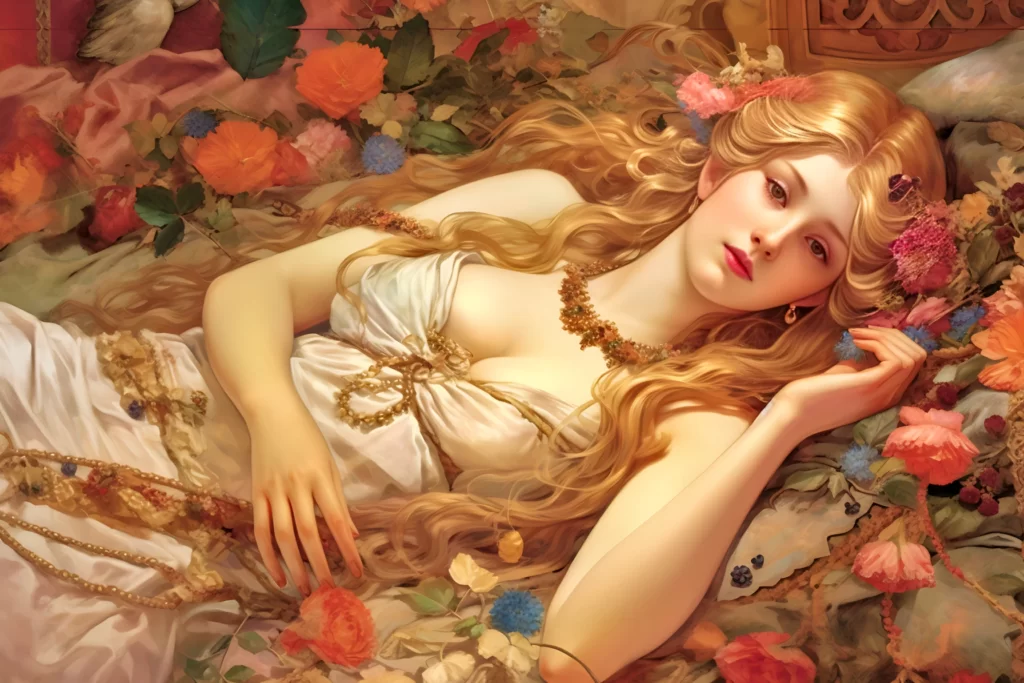
At the same time, Aphrodite also represents the shadow side of eros, which includes jealousy, possessiveness, and destructive passion. In some myths, she is portrayed as a vengeful goddess who punishes those who dare to resist her charms or betray her trust. This duality of Aphrodite’s nature reflects the ambivalent attitudes of ancient Greek society towards sexuality and love, which could be both revered as a sacred gift and feared as a dangerous temptation.
Another aspect of Aphrodite’s symbolism is her association with the sea, which can be interpreted as a metaphor for the unconscious depths of the psyche. The sea represents the vast and mysterious realm of emotions, instincts, and dreams that lie beneath the surface of conscious awareness. As the goddess of love and pleasure, Aphrodite embodies the power of the unconscious to influence and shape our desires and relationships, often in ways that we may not fully understand or control.
Ἡ θεά Ἀφροδίτη οὐ χρείαν ἔχει τοῦ ἅρματος ἵνα περιπορεύηται, ἐν γὰρ ταῖς καρδίαις τῶν ἀνδρῶν καὶ γυναικῶν ταξιδεύει.
- Σαπφώ, ἀρχαία Ελληνίδα ποιήτρια.
The goddess Aphrodite doesn’t need her chariot to move around, for she travels in the hearts of men and women.
– Sappho, ancient Greek poetess.

Finally, Aphrodite can be seen as a symbol of the creative impulse, which seeks to bring forth new life, beauty, and meaning from the chaos and complexity of existence. In some myths, she is credited with inspiring artists, poets, and musicians to create works of enduring beauty and inspiration. This aspect of Aphrodite’s symbolism highlights the transformative potential of love and beauty to uplift and enrich our lives, and to connect us with something larger than ourselves.
In conclusion, Aphrodite is a complex and multi-faceted symbol that embodies the many dimensions of love, beauty, and creativity. By exploring her myths and legends, we can gain a deeper understanding of the archetypal patterns and themes that shape our lives, and connect with the universal human experiences that have inspired artists, thinkers, and spiritual seekers throughout the ages.
The richness and diversity of Greek mythology: how goddesses continue to inspire our imagination.
These Greek goddesses are just a few examples of the richness and diversity of Greek mythology. Their stories and powers have inspired works of art, plays, novels, and films and continue to fascinate and inspire people worldwide today.



